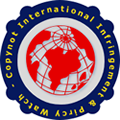

Respect the value of music, movies and software by buying only from legitimate sources
Copyright Infringement and Unauthorised Copying.
Illegal Copying
Unauthorised copying and illegal downloading has a major and damaging effect on the music, film and software industries.
Virtually everyone knows that it is illegal to copy and distribute movies music and software but the reasons why it is illegal are not so well understood. The answers lie primarily in the way that copyright laws apply to movies, music and software.
To ensure there are proper incentives for companies and individuals to continue investing in the creation, production, promotion and marketing of software, film and sound recordings. International treaties and national laws grant the creators and producers of software, film and sound recordings various rights.
These rights include the exclusive right to commercially copy the recordings and to distribute / import / export those copies. Depending on the country you live in, these rights may be called copyrights, or 'related' or 'neighbouring' rights. These are separate to any rights that may subsist in the music or the lyrics that are being recorded.
It is these rights that enable law enforcement bodies to take criminal action against those who copy and distribute software, movies and music without the permission of the companies or individuals that invested in producing it. They also allow record and film producers to take civil actions to recover compensation for damages suffered as a result of movie and music piracy.
While there are often other laws or regulations that are broken by movie music and software pirates (eg. tax laws, trademark laws). The rights of movie music and software producers under copyright or related / neighbouring rights laws are the fundamental basis for the illegality of such piracy.
Copyright Infringement
The basic concepts of copyright infringement & intellectual property theft in international Copyright Law.
This is the unauthorized use of copyrighted material in a manner that violates one of the copyright owner's exclusive rights, such as the right to reproduce or perform the copyrighted work, or to make derivative works that build upon it. There are many different ways copyright owners may find their copyright has been infringed. For example, in the film and music industry, infringing activities include the following:
Copyright is a bundle of exclusive rights contained within copyright law which provides the owner of acopyright in a work the exclusive right and anyone who violates any of the exclusive rights of the copyright owner ...is an infringer of the copyright or right of the author.”
The copyright Owner / Holder has the exclusive right;
- To reproduce the work in copies. To prepare derivative works based upon the work.
- To distribute copies of the work to the public by sale or other transfer of ownership, or by rental, lease, or lending.
- To perform the work publicly.
- To display the copyrighted work publicly.
- In the case of sound recordings, to perform the work publicly by means of a digital audio transmission.
Plagiarism
Music plagiarism and unauthorised copying is the use or close imitation of another author's music while representing it as one's own original work. Plagiarism in music now occurs in two contexts — with a musical idea or sampling
Plagiarism is the "wrongful appropriation" and "stealing and publication" of another author's "language, thoughts, ideas, or expressions" and the representation of them as one's own original work. Plagiarism is considered academic dishonesty and a breach of journalistic ethics. It is subject to sanctions such as penalties, suspension, expulsion from school or work, substantial fines and even incarceration. Recently, cases of "extreme plagiarism" have been identified in academia. The modern concept of plagiarism as immoral and originality as an ideal emerged in Europe in the 18th century, particularly with the Romantic movement.
How long does Copyright last?
After 1978 the law was changed to extend the life of a copyright from 50 years to 70 years after the death of the author or creator. Different countries may have unique copyright laws, but most have agreed by (the Berne) treaty to recognize and honour the laws of other nations in safeguarding works internationally against breach of copyright.

Register Your Songs, Music and Lyrics
![]()
Songrite Copyright Office
Songrite Copyright Office - International Copyright Registration Service.
Songs, music and lyrics registered online or by regular mail service.